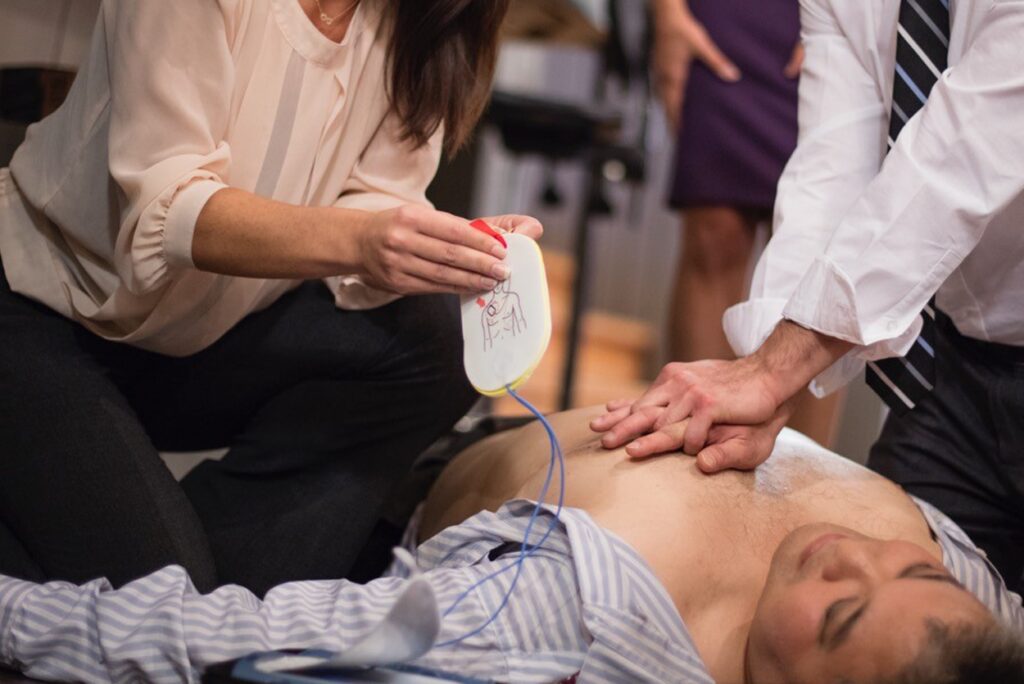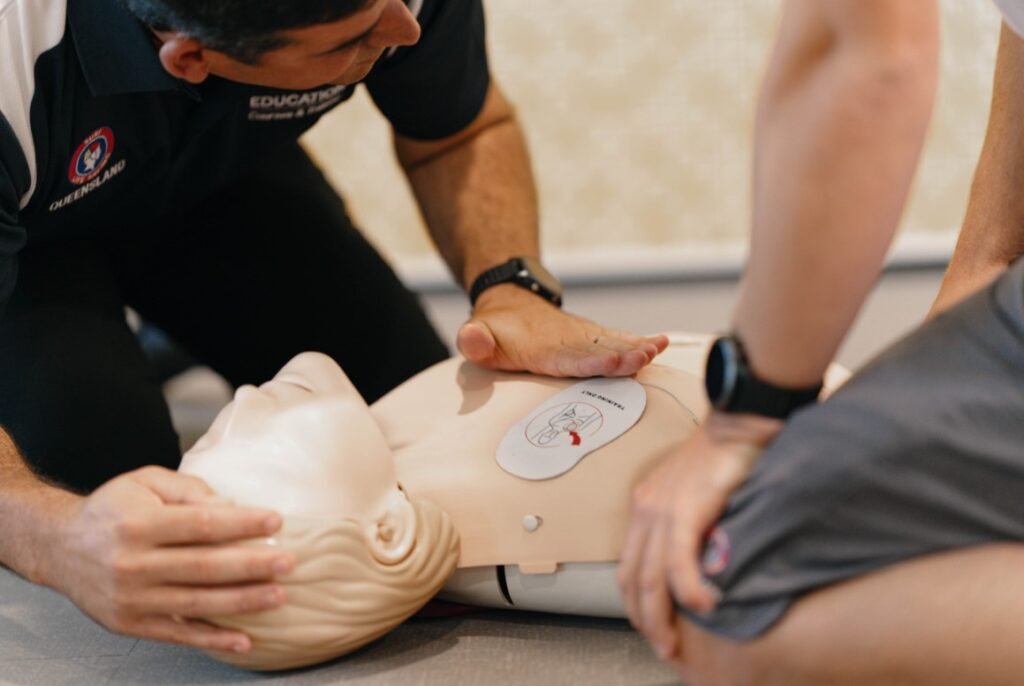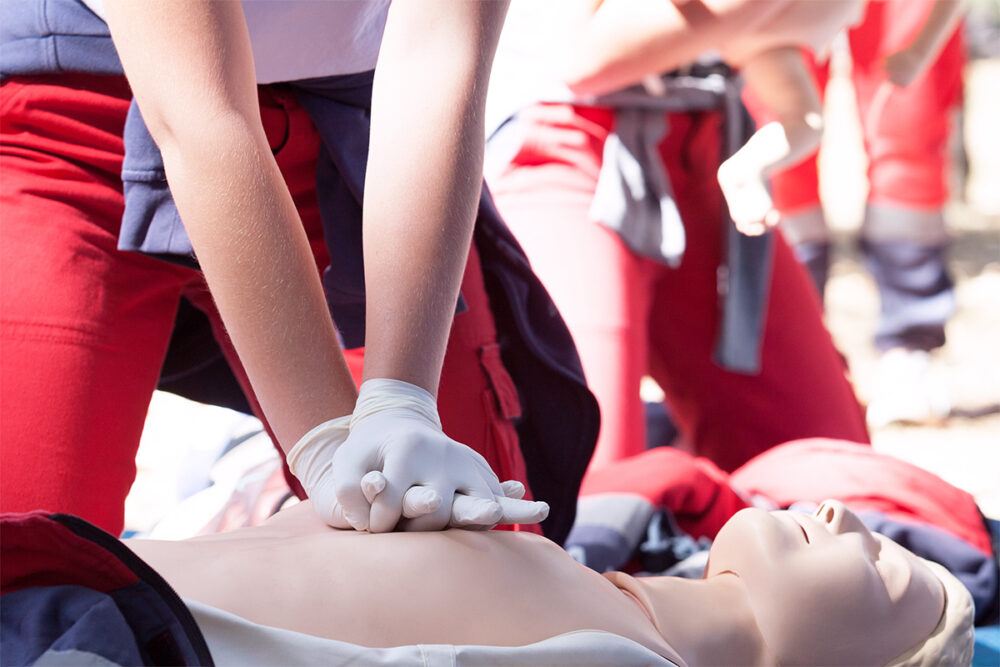Cardiopulmonary Resuscitation (CPR) is a life-saving medical procedure administered to someone who is in cardiac arrest. It’s a critical skill to possess as it can mean the difference between life and death in emergency situations. It involves chest compressions and breaths to maintain circulatory flow and oxygenation to preserve brain function until further measures are taken.
This post will delve into the paramount importance of CPR awareness, the critical moments in cardiac arrest, the role and empowerment of bystanders, accessibility to training, its impact on survival rates, and much more, all in a manner that is easily digestible for everyone.
The Prevalence of Cardiac Arrest
Cardiac arrest is a grave medical emergency, occurs suddenly and without warning. It can happen to anyone, regardless of age or apparent health condition. Every year, thousands of people experience cardiac arrest outside of a hospital setting.
The unpredictable nature and widespread occurrence of cardiac arrest emphasize the universal need for CPR awareness and education. The harrowing reality is that many victims do not receive immediate help, and this can drastically decrease the chances of survival and recovery.
The Critical Moments in Cardiac Arrest
When cardiac arrest occurs, every second counts. It is the critical juncture where the heart stops beating unexpectedly, leading to the cessation of blood flow to the brain and other vital organs. Immediate intervention is essential in these pivotal moments to sustain life.
The concept of the ‘chain of survival’ underscores the sequence of actions that must be rapidly initiated, including calling emergency services, performing CPR, and using an Automated External Defibrillator (AED). These timely actions are crucial in increasing the likelihood of survival and minimizing potential long-term damages which is why you should consider training from cprcertificationnow.com.

Source: surefirecpr.com
CPR as a Bystander Intervention
Often, bystanders are the first on the scene in cardiac arrest situations, positioning them as crucial interveners capable of initiating life-saving measures. CPR performed by bystanders has been proven to significantly improve survival rates and outcomes.
It is vital to foster a sense of community responsibility and encourage individuals to undergo Cardiopulmonary Resuscitation training. This proactive involvement can transform ordinary people into immediate responders, capable of altering the course of events in dire situations until professional help arrives.
CPR Training Accessibility
CPR training is widely accessible through various platforms, including online courses that provide convenience and flexibility. Overcoming barriers such as time constraints and availability is crucial in promoting widespread Cardiopulmonary Resuscitation education.
These training programs equip individuals with the knowledge and skills necessary to act promptly and effectively in emergency situations, rendering them invaluable assets to community health and safety.
Empowering Individuals to Act
Possessing CPR knowledge bestows a powerful sense of empowerment and pivotal responsibility upon individuals. It strongly encourages heightened vigilance and readiness to assist in diverse emergencies, significantly contributing to the collective well-being and resilience of the community.
Numerous inspiring stories abound of ordinary, everyday people performing Cardiopulmonary Resuscitation in critical situations and transforming into inadvertent heroes, reinforcing the universally applicable notion that everyone, irrespective of their background, can make a profoundly positive and lasting difference in saving lives, and enhancing community welfare.

Source: kemeducation.com
CPR and Workplace Preparedness
Within the diverse landscape of the workplace, CPR training transcends being merely an additional skill, emerging as a pivotal and indispensable component of overarching safety preparedness. Employers, driven by ethical imperatives and, in numerous jurisdictions, legal mandates, are required to ensure that employees have unfettered access to comprehensive CPR training, thereby fostering a workplace environment that is markedly safer and more responsive to medical exigencies.
Cardiopulmonary Resuscitation certification is an integral element in crafting workplaces that are adeptly equipped to handle a myriad of medical emergencies efficiently, substantively augmenting the potential for saving lives in unforeseen and critical situations.
CPR and Family Preparedness
In the intimate setting of the home, families inherently form the first and most immediate line of defense against sudden, home-based emergencies. The act of imparting CPR education within the cohesive family unit is exceptionally instrumental in fostering a fortified culture of preparedness, alertness, and responsiveness.
The holistic integration of CPR skills into meticulously crafted family safety planning guarantees immediate and appropriate action in emergencies, substantially optimizing the chances of survival and concurrently minimizing the risk of enduring, irreversible damage to the victim.
CPR’s Impact on Survival Rates
The advent and widespread adoption of CPR have been monumentally pivotal in amplifying survival rates in diverse cardiac arrest cases. A plethora of robust studies and compelling statistics corroborate the decisive, life-saving impact of immediate and meticulously effective Cardiopulmonary Resuscitation.
The stark, undeniable difference between receiving and not receiving CPR is manifestly evident in the countless, grateful lives saved, each one a vivid testament to the transformative, life-altering power of this indispensable life-saving intervention, showcasing the incredible value of timely, well-executed resuscitative actions.

Source: lifesaving.com.au
The Psychological Benefits of Learning CPR
Learning CPR is not only about acquiring a new skill but also about gaining confidence and a renewed sense of purpose. It alleviates the fear and panic often associated with emergency situations, enabling individuals to act with composure and assurance. The psychological growth and fortitude derived from Cardiopulmonary Resuscitation education are invaluable, fostering a mindset of readiness and resilience.
Community CPR Awareness Campaigns
Community-driven initiatives play a pivotal role in enhancing CPR awareness. Collaborative efforts between various organizations, schools, and healthcare providers are crucial in disseminating CPR knowledge. These synergistic collaborations create a ripple effect, spreading awareness and education, which are instrumental in cultivating a society that values and prioritizes life-saving skills.
Conclusion and Call to Action
The importance of CPR awareness cannot be overstated. It is a critical life-saving skill that everyone should acquire. It empowers individuals, fosters community resilience, and significantly improves survival rates in cardiac arrest situations.
Let’s all embrace the responsibility of learning CPR and become advocates for widespread awareness. Let’s inspire collective commitment and action in saving lives and creating a world where everyone is equipped to respond to emergencies with confidence and competence.

Source: hsestudyguide.com
Take Action
Encourage and inspire others to join the journey of becoming life-savers. Learn CPR, spread awareness, and let’s make a tangible difference in our communities and the world at large.
This post serves as an overview, and each section can be expanded upon to reach the desired word count while maintaining clarity, coherence, and engaging storytelling.

















